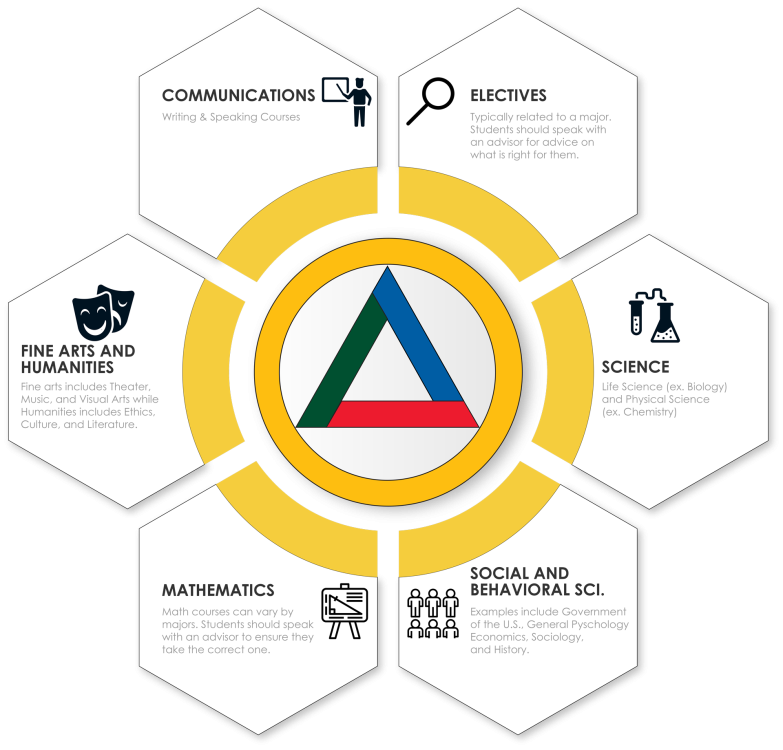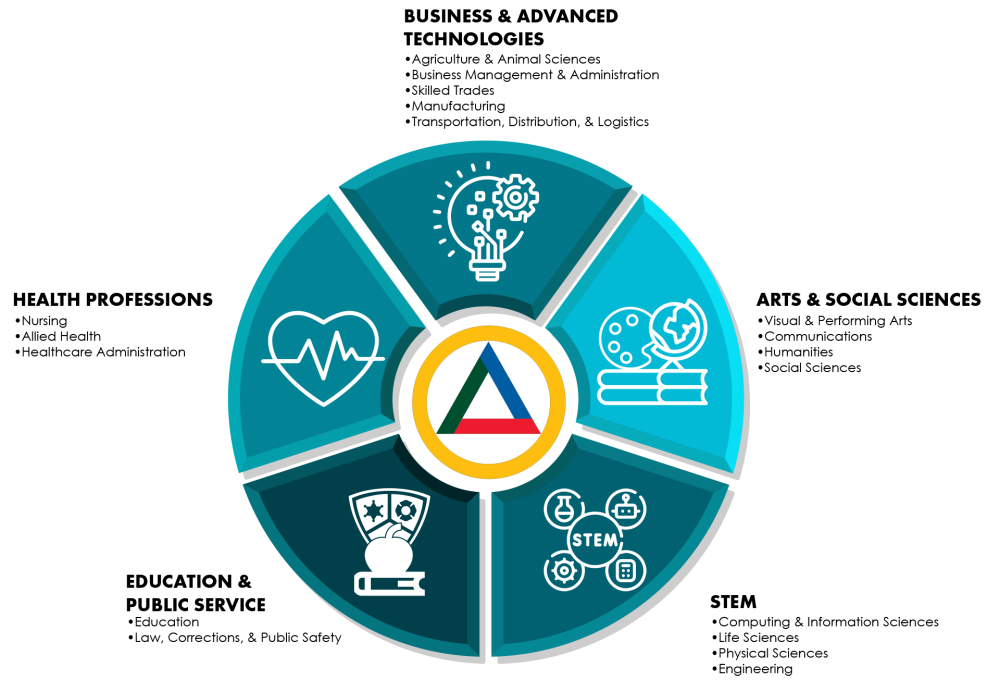There are many routes to be explored in dual credit. You can take transfer classes and prepare to complete an Associates or Bachelor’s degree. You can select a pathway in Career & Technical Education (CTE) and work towards a certificate or degree that will help you move directly into the workforce.

Transfer classes fall into 6 categories. Depending on the transfer degree you choose to pursue, a combination of these classes and a total of 64 credit hours are needed to graduate. While there are common classes across many programs (i.e. Composition I which is a Communications course), many times the career field you are interested in would impact what courses your advisor recommends. Because of the importance of choosing the correct courses for each individual student, IECC works with your high school counselor to determine what is most appropriate for you.
For example, all transfer degrees require mathematics courses. If you plan to go into Psychology, we would recommend you take a statistics course. If you are interested in engineering, we would suggest preparing for and enrolling in Calculus courses.
Career and Technical programs are very specialized and typically require very specific courses in a specific order. There are 114 CTE programs offered across the IECC campuses. If you are interested in a CTE program, you can begin coursework towards that certificate or degree through dual credit. Some programs require general education courses that are easy to take through dual credit. For example, nursing students are required to take Introduction to Psychology and Fundamentals of Effective Speaking (Speech). If you are interested in nursing, you can take these courses as part of your dual credit to help you begin on the pathway to nursing. Some program-specific courses might only work towards a single certificate or degree program.

